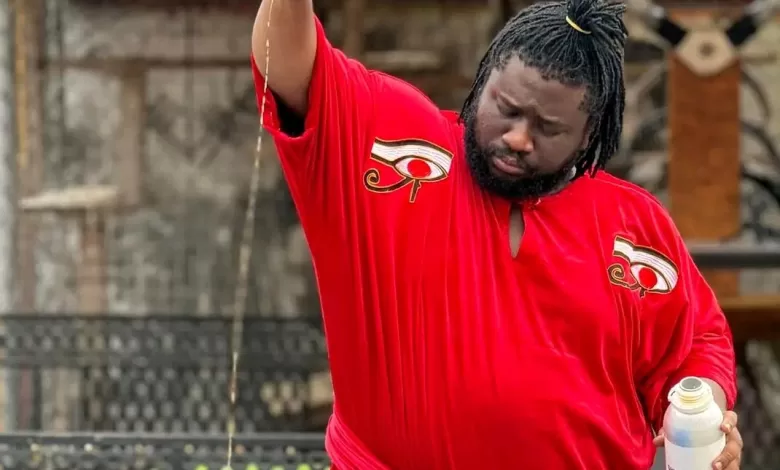Ajagurajah: Don’t Trust Serial Apologizers

- Ajagurajah warns against individuals who repeatedly apologize, suggesting potential hidden motives behind their actions.
- Ajagurajah emphasizes the importance of communicating his reluctance to forgive easily to those around him, ensuring clear understanding of his boundaries.
- Expressing skepticism, he questions the sincerity of those who intentionally cause harm but readily apologize afterward.
Ghanaian spiritual leader Ajagurajah, founder of the Universal Spiritual Outreach (USO), also known as the Ajagurajah Movement, has sparked conversation with a recent warning against people who constantly apologize.
Ajagurajah expressed his reservations about those who habitually utter “sorry,” suggesting such behavior might mask untrustworthy intentions. He revealed his father’s advice as the source of his perspective, emphasizing caution when encountering such individuals.
“Someone who frequently apologizes, consistently offering apologies, that individual is not to be trusted,” Ajagurajah firmly stated during a Thursday interview on Accra-based Hitz FM, according to Kumasi.city.
Visible bewilderment marked his voice as he questioned the logic behind inflicting intentional harm and then resorting to apologies. Ajagurajah expressed his struggle to forgive such actions, highlighting the pain inflicted despite apologies.
“Why inflict intentional harm upon me and then turn around and apologize? Forgiveness does not come naturally to me,” he declared. Biblical reference was made to support his stance, with Ajagurajah citing Exodus 23:20, a passage which some interpret as advocating for measured forgiveness.
Ajagurajah, known for his direct approach, went on to explain that his reservations towards frequent apologies stem from a personal struggle with forgiveness. He emphasizes transparency with those around him, ensuring they understand his boundaries and expectations.
This perspective has garnered mixed reactions. Some listeners expressed agreement with Ajagurajah, acknowledging the inauthenticity of some apologies. Others questioned the validity of judging character solely based on apology frequency, suggesting context plays a crucial role.
The debate has ignited discussions about forgiveness, accountability, and the role apologies play in interpersonal relationships. Ajagurajah’s comments have challenged listeners to consider the sincerity behind apologies and their impact on healing and reconciliation.
It remains to be seen whether this will lead to a shift in how Ghanaians approach apologies. However, Ajagurajah’s message has undoubtedly sparked a conversation about navigating forgiveness and building trust in our interactions.






